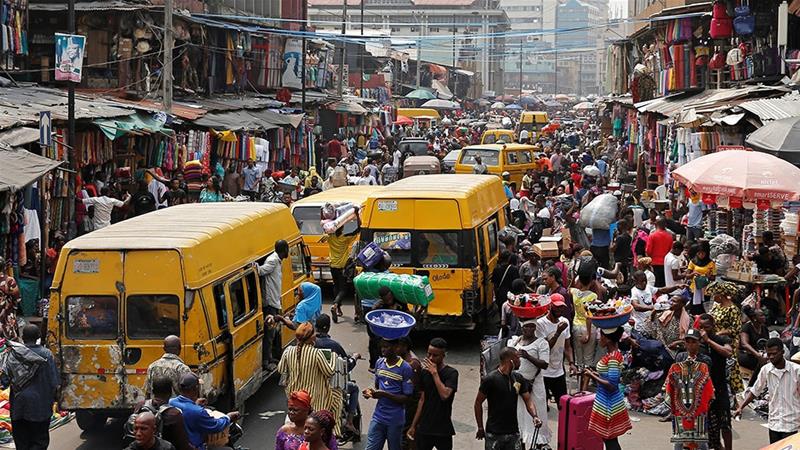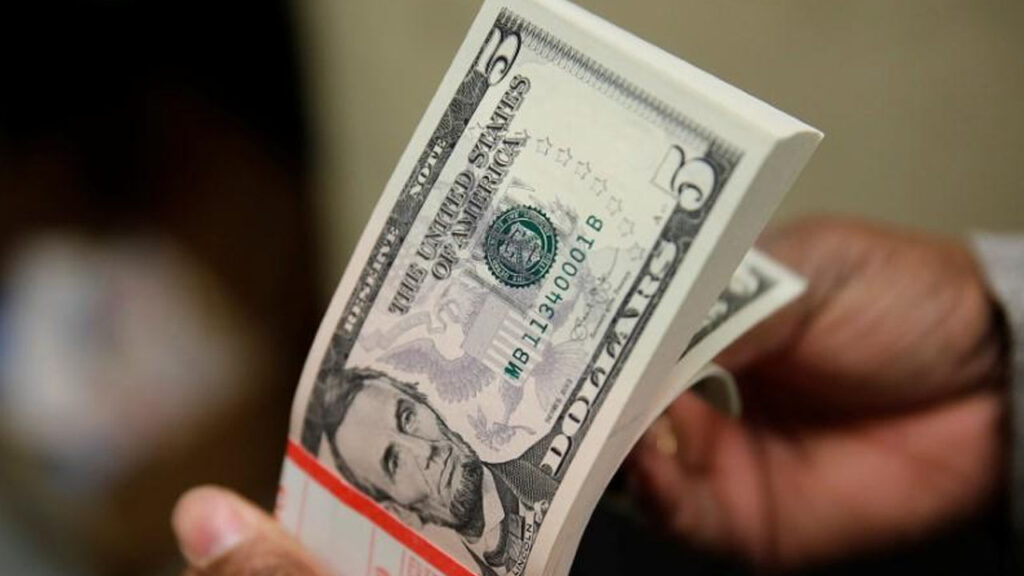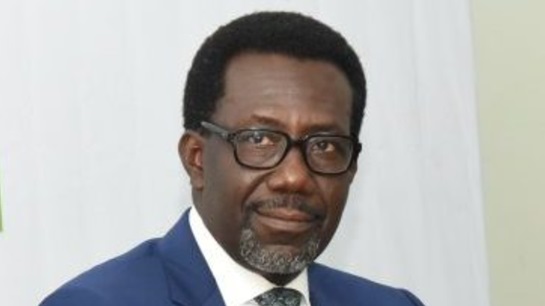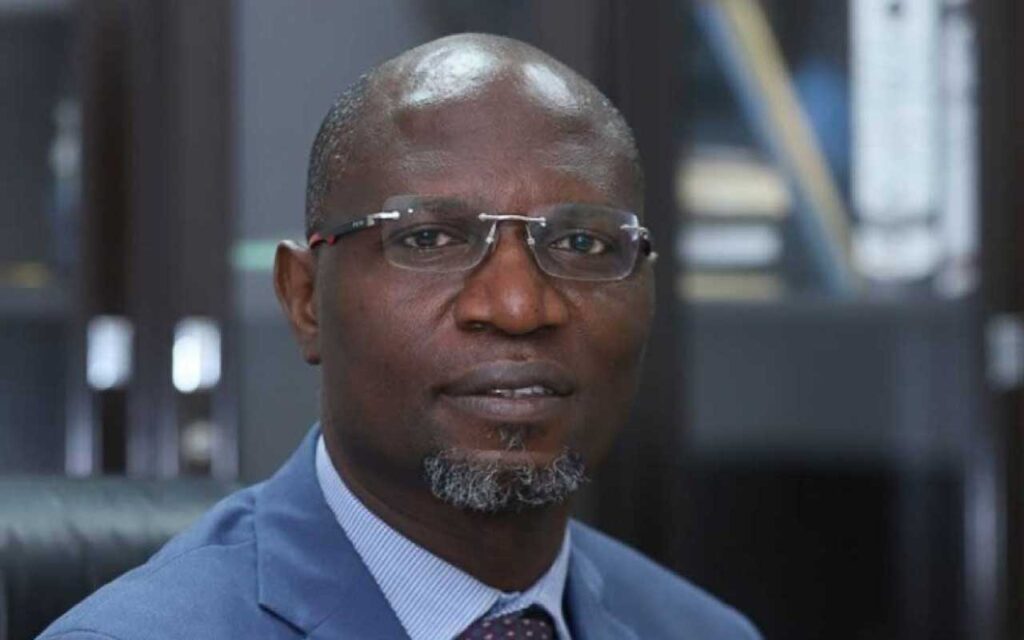
Indonesia’s Ambassador to Nigeria, Harry Purwanto officially resumed duties in the country on March 3, when he presented his letter to President Goodluck Jonathan. In this interview with journalists in Abuja, he explained his areas of engagements with the Nigerian economy, adding insights into how his country has emerged the 10th largest economy in the world through industrialisation and promotion of Small and Medium Enterprises. ABOSEDE MUSARI was there for The Guardian.
What are the common features between the economies of Nigeria and your country? Again, how would you describe the level of trade relations between them?
I must admit first and foremost my delight at being posted to this great country. Nigeria is a major power of Africa. Our two countries have some commonalities.
Indonesia is the largest country in South East Asia, not only in terms of geography but also in terms of population. Indonesia is 250 million people and we are the 10th largest country economically. We are a unitary state but you are a federal state. Both countries are rich in culture. There are 700 different languages in Indonesia but we have developed one of the many minority languages to become our national language by adding bits of other languages.
We have a strong military defending our country. We consider our development successful. Up till now, the middle class has increased to 50 to 60 million people. Around 73 per cent of Indonesians are between the 16 and 34 age bracket. We pride ourselves as a young population; and if we can do something about this demography, our economy will be much better in the future. In Indonesia, there are many people who prefer to live very modestly and they live with nature. It gives impact in dividing our economy per capita. We do our utmost to increase our GDP so we can increase the per capita.
Indonesia is blessed with not only natural resources but also human resources, like Nigeria. We are very proud of our country. That is why there is only a very small number of Indonesians going abroad. If you compare to some countries such as China or even Malaysia, Indonesians are not many abroad. We have been blessed with natural resources. Our soil is fertile. Now we are trying to increase our earnings through tourism. In the 80s, we were aware that tourism can contribute a lot to our economy. In 2014, we recorded around seven million tourists coming into Indonesia. We at the embassy try to share a more understanding with regard to Nigeria because we are trying to encourage people to come to our country.
I have a very strong commitment to promote the interaction, not only from government to government but also from people to people. Because of the past experience where unfortunately, some Nigerian citizens were involved in criminal activities in Indonesia, there is a difficult policy in Indonesia in allowing Nigerians to come to Indonesia. Because every Nigerian who have been to Indonesia must have an invitation from their compatriots in Indonesia. Now we are trying to make this policy more lenient so we can have more Nigerians go to Indonesia. I hope we will get through with this soon.To change impressions sometimes is difficult. This is the fact of life we sometimes miss. We can’t continue making decisions on perceptions rather than reality. I’m so glad to be in Nigeria because here I see democracy is getting mature, also the freedom of speech. Freedom of press. It’s something that some other countries should learn from. We also should be careful. Like in Indonesia, we also have a very free press but sometimes it incites violence among ethnic groups. And I think in Indonesia, the press has been supportive in encouraging the nation building process because we understand that in Indonesia, there are so many ethnic groups and languages. Also, because we are in different Islands, the sea is not a division but something that can connect us. Our differences are things that shouldn’t divide us but our differences can enrich our unity. It’s easier said than done but we in Indonesia always try to encourage this kind of environment.
How about the volume of bilateral relations between the two countries?
Indonesian government has established a good measure of relations with Nigeria. Nigeria is the major power of Africa and you enjoy the  position of the largest economy in Africa. Considering our similarities, and excellent relations between us, we have to do more in bilateral relations. We feel that our bilateral relations should not be restricted to between governments and officials, but also the people of both countries.
position of the largest economy in Africa. Considering our similarities, and excellent relations between us, we have to do more in bilateral relations. We feel that our bilateral relations should not be restricted to between governments and officials, but also the people of both countries.
We both have some potentials to share benefits and contributions. We have something to exchange. Indonesia’s trade balance with Nigeria is sizeable. It was $4 billion in 2014, $3.6 billion in 2013. I think it’s still in favour of Nigeria because we buy more than we sell to you. And I do recognise that there are some Indonesia related companies operating in Nigeria. There are more than 20 of them from manufacturing, consumer products, food to plantations, pharmaceuticals. In 2013, five of Nigerian airline companies did their maintenance in Indonesia.
We are credible in maintaining airplanes. There are also some other customers from other countries. We sell food, electronic appliances, footwares and some other things to Nigeria. We are introducing Indonesian products having high quality though the price is higher than what you get from other countries last year. But if you consider quality, Indonesian products will give more benefits.
As a new ambassador in Nigeria, what will be the focus of your country’s relations with Nigeria?
We just completed our presidential election at the end of 2014. Our elections were interesting because we had two contestants close to each other. It was difficult to predict who would win. Luckily, it did not resort to violence. The argument was very strong and tough but it didn’t bring us to any violence.When we successfully found a new president, other groups supported them in order to have a united nation because we understand that in presidential elections, it’s the nation that matters not individuals.
Now with the new president, His Excellency Joko Widodo, he has a new pragmatic policy. He is humble and his concept is simple but sometimes not easy to implement. His policy focuses on how to increase the prosperity of Indonesia. And we have to have a strong defence and a stable nation. Because only when we can defend ourselves and our country is stable that we can have the opportunity to do our effort to make our country more prosperous.
The president asked all ambassadors to focus on the economic relations to help our economy and also nurture our bilateral relations. Our bilateral relations are robust. It’s cultural, political and economic but we also have our interest in ensuring that the countries where we serve are peaceful.
In my assignment, I will like to reach out to Nigerians and I’m looking forward to working with this country. To meet Nigerians from all walks of life so I can learn the challenges and hear their success stories. Now, in this modern world, you can’t do everything alone. It has to be in cooperation. Indonesia is sharing some similarities with Nigeria and I hope this will promote our relations.
How has Indonesia been able to run its economy to keep the youths from running abroad with the hope of finding greener pastures?
From very small age, Indonesians are taught to love our environment. Indonesians are always bound by their local environment and always dreaming of passing away in our country. We have a very good national song on how we describe how we love our country and we sing that when we are passing away, we hope we are passing away in our country. That makes every Indonesian proud of the country. But with the global world, we sometimes encourage Indonesians to go anywhere.
You can get the best practices from any part of the world, as long as you maintain your commitment to Indonesia. For example, in the U.S, only few Indonesians will become U.S. citizens. It’s only a few Indonesians who can get to the highest levels and get into the government or the private sector. Perhaps, they can step up their career in the universities.
Other nationals such as Chinese, Koreans, Japanese, have become ministers in the U.S. but Indonesians are still working as small clerks in small offices. That’s why we say to our youngsters, even if you change your nationality,… perhaps you can take advantage of the relations but of course they will not change their focus. Still Indonesians go abroad for studies. Indonesian youths also stay at home because Indonesians are always relying on their families. Even if you are so poor, you can still have your meals three times a day because your family will support you. Also, Indonesian population is big so we try to enhance the small and medium size enterprises. And it was proven when we had a crisis in the late 90s, we survived because of the SMEs.
The SMEs also give more jobs to the people but the pay is not so fantastic. But with it, one can live properly, send his children to government school. Youths still prefer to stay at home than go abroad. Now, we also give some opportunities and facilitate some of the youths to find jobs outside the country. We facilitate them. We also understand now that their earnings add to our national economy.
How can Nigeria and Indonesia learn from each other?
Indonesia can learn many things from Nigeria. Also we can also share our experience on how we have industrialised. In Indonesia, our import is smaller than our export. We also industrialise our country by inviting foreign direct investments. They are expected not only to create jobs but also to transfer technology. Because we have some capacity, it’s very easy for us to absorb. Some companies rely on Indonesia. Our productivity also is higher.
Indonesia has faced terrorism for a long time and this phenomenon began in Nigeria a few years ago. How has Indonesia been able to deal with the menace?
I was deputy chief of the national counter terrorism body in Indonesia. Terrorism in Indonesia is really imminent. It’s not a joke. It’s really there. We experience series of terror incidents in Indonesia and more than 400 people have died. The danger of terrorism is not the distractions that they are making, but the impact they make. What they are up to is actually to intimidate the people, to compel the government either to do or not to do something.
They are trying to distabilise the economic, political and social life of the country. They can offer to the people that their ideology is better than what the government offers them. Terrorism in Indonesia is mostly ideology-driven. They want to build Indonesia with different ideology and structure of government. Indonesia has suffered from terrorism since independence. At independence, we committed that we were going to build Indonesia for everybody, every religion and ethnic group but there are some people who want to build Indonesia in line with their religions and they are always finding a way to show to the people that the government is incompetent.
They are also using local grievances mixed with truth, conspiracy and with lies. The agency is relatively young, established in 2011 but we do apply two prong approach, the hard and soft approaches. By hard approach, we try to destroy and decapitate terrorist groups, individuals and at the same time, also bring them to justice. We already brought more than 1,-000 people to justice. More than 400 are in prison, some executed, some are ready to be released because they have already fulfilled their terms of punishment in jail. Using the soft and persuasive approach, we empower the society.
We provide the confidence so the society has the confidence to challenge the terrorist and the radicalists. The third is to give them counter narrative. They are easily won over by radicals who are smart in influencing people based on religion and the people are so confused.
Now, we have already crossed the decapitated terrorist cells. Luckily, they are not facing terrorists who can take off regions or the city or the village. When they were on the surface, almost immediately, they were destroyed. So, no terrorist wants to operate on the surface. What they are doing now is trying to use technology to spread their lies and to make the government look bad. They are also trying to use the democratic environment in Indonesia, the freedom of expression, the freedom of press to disseminate their information. This is a challenge for us now in Indonesia. Here we have so many islands, so many societies and ethnic groups. If we are not good enough in empowering them and in enhancing their confidence, we are going to fail.
What can your government do for Nigeria with regard to some of its citizens on death row in Indonesia?
On the list, there are 20 Indonesians as well. Indonesian legislation still recognises capital punishment for serious crimes. This applies to everybody; Indonesians and foreigners. We apply the capital punishment in serious crimes like terrorism, and narcotics. We put narcotics because Indonesia is in the emergency of narcotics. Thousands of Indonesian children die every month. We remind everybody, including foreigners who are going into Indonesia on the flight before they land in Indonesia that trafficking in Indonesia can lead to the death penalty. Not all though, there is a certain amount of drugs that attract the capital punishment.
It is not the government who sentences people for capital punishment, it’s done through the long and due process of law. From the first district court when they are apprehended, they get trial in district court after which they go to the appeal court. After this to the Supreme Court. After the Supreme Court, there is still the clemency stage. So, before getting to all the steps, and the request for clemency and it’s denied, then after we have given ample opportunity for access to the foreign embassies whose citizens are involved, they have all access. They are free to give their consular assistance to these people. Only after the legal defence is exhausted that the execution will be applied.
In using the due process of the law, is there no room for negotiation?
The government of Indonesia is separated from the judiciary and legislative. The government cannot intervene. But the president can come in when the request for clemency is made. Negotiation? It’s rather not common in Indonesia to negotiate a legal case. Perhaps what you do is to tell your legal defence to do their own, and the embassy also. I feel sorry we are facing this kind of situation where three Nigerians are approaching execution. But it looks like we have a little delay because there are convicts who tried to do further legal process. They try to make a review but there are some criteria to meet. If you have new evidence and it’s really proven, then you can do a review. I don’t know if it can be done more than once because I understand a review had been done before the clemency. Perhaps, somebody just found a new genuine evidence which is contrary to the old one but I have to admit that I don’t know the details of why there is a legal process, the waiting before the executions are done.
What of prisoner swap?
We have already negotiated with some other countries including Nigeria but the negotiations are inconclusive because Indonesia is rather hesitant to prisoner swap although there is room to do this kind of negotiation. As I mentioned, when I met the permanent secretary, I already sent his appeal to Jakarta but of course, in a case like this, they will respond after inter-agency consultations. This issue has already been raised by Nigeria previously. We have our bilateral meeting. The response from Indonesia is yet not so clear. In 2013, we had one Nigerian executed. In 2015, two Nigerians were executed. We executed Nigerians and others as well. Indonesians are also on the death row. What are the commonest crimes Nigerians are involved in? Trafficking. Only syndicates and producers of narcotics are sentenced for capital punishment, not all traffickers. They are already aware that if they do it, they risk the death penalty. According to our information, there are 10 persons still on our list of those to be executed.












